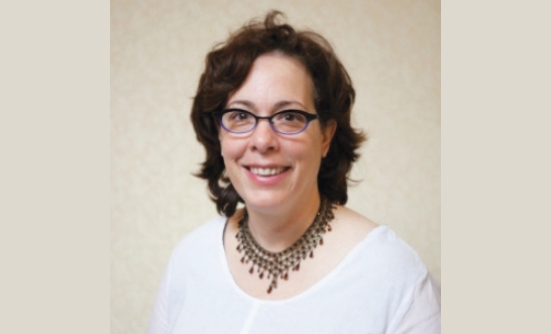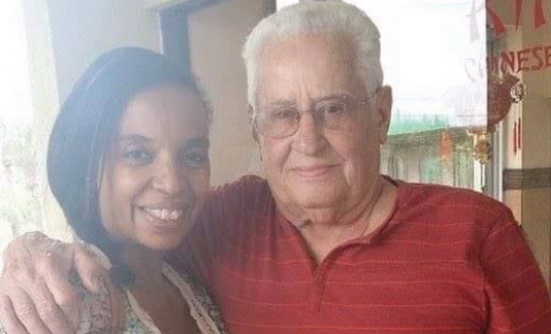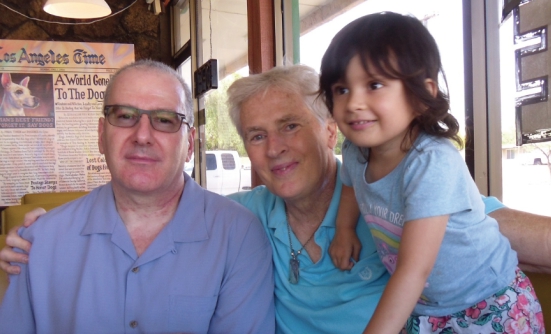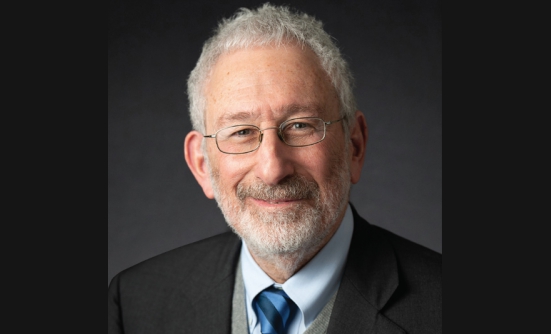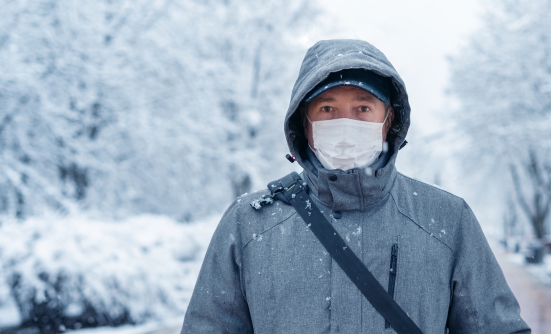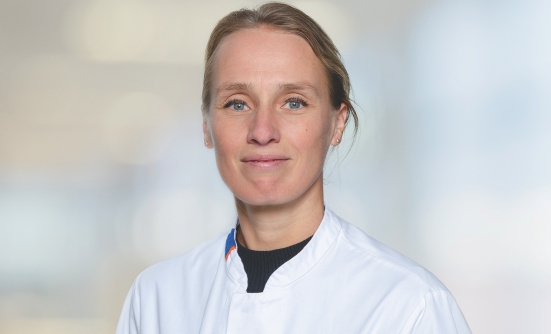During a recent webinar on COVID-19 that focused on caregivers for patients with cancer, Shera Dubitsky, MEd, MA, Senior Advisor to Sharsheret’s Medical Advisory Board, addressed the topic of traversing the uncharted territory of COVID-19, focusing on caregivers and family members of women with breast or ovarian cancer.
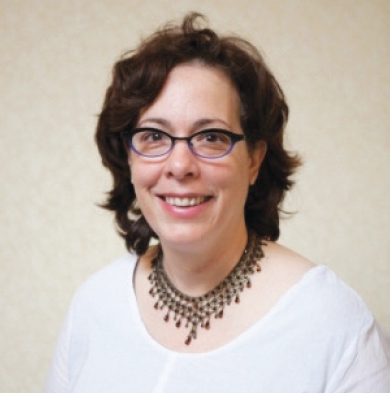
“These are very unprecedented times, and we understand the challenge,” said Executive Director Elana Silber, MBA, explaining that Sharsheret’s longtime model is one of remote support.
Sharsheret is a nonprofit organization focusing on women with ovarian or breast cancer, many of them of Jewish heritage. Women of Jewish Eastern European ancestry are at an increased risk of inheriting the BRCA gene, which is passed on from parent to child.
Women with that gene are at increased risk for the BRCA1 or BRCA2 genetic mutation, which increases the risk for breast or ovarian cancer.
Taking Charge of the Situation
Ms. Dubitsky used her personal experience to list some recommendations for caregiving from afar. Her father recently underwent heart surgery in Florida. She and her 2 brothers live states away, so providing help to their father has been difficult.
Along with guilt about not being there, she feared missing out on important medical information being relayed to her father and was not familiar with local resources, which added to the difficulties of providing help from a distance. In addition, she worried about her stepmother, who was undoubtedly feeling overwhelmed.
Ms. Dubitsky listed the actions she took from a distance, including scheduling times for family members to call her father, and designating a family member to speak with doctors, who would then update the group via periodic Zoom meetings. She also did research online of local pharmacies, supermarkets, and restaurants that offer delivery services, to organize deliveries for her father and stepmother.
Ms. Dubitsky pointed out that these types of activities also apply to those who live nearby, or even in the same home.
Emotional Support
For emotional support, she advised, follow the patient’s lead. Listen well, and let the patient share information in a way she finds most comfortable. As she shares her information, you can provide support by validating her feelings.
“Living with a cancer diagnosis is already very emotional, and it’s certainly much more complicated and magnified by the restrictions and the change in healthcare during this pandemic,” Ms. Dubitsky said.
“Her feelings may vacillate between worrying about really big things, like survivorship, and more mundane concerns, like food shopping and meal planning,” she said.
Along with concerns about being infected with the novel coronavirus, patients with cancer grapple with having surgeries and follow-up appointments postponed, as well as having difficulty reaching their doctors. Other issues, such as having children at home, only amplify these anxieties, Ms. Dubitsky said.
“Regardless of what you’re dealing with, it’s important not to move into problem-solving immediately,” she pointed out, adding that patients may feel out of control, so it is important to let them make decisions.
To alleviate anxiety, Ms. Dubitsky suggests cutting down time spent on watching the news and on social media. If the patient fears she will miss out on information, a caregiver can offer important updates.
Reassure the patient that the majority of patients with COVID-19 infection are recovering, and that extreme measures are now in place to eradicate this coronavirus, while encouraging her to find areas over which she has control, such as hand-washing and social distancing.
If the anxiety is debilitating, seek mental health services for the patient through Sharsheret or other cancer organizations, she advised.
Create a Checklist and Delegate Tasks
Ms. Dubitsky suggested creating a checklist for responsibilities and then delegating the duties. To do this, you must determine the patient’s medical and emotional needs. This may prove easier said than done, because many patients want to avoid burdening others.
She added that the caregiver should find nuanced ways to gauge the patient’s needs by asking questions such as, “How have you been sleeping? What have you been eating lately? Who are you in touch with? How are you spending your days?”
“Organize a conference call with your loved one and all caregivers,” Ms. Dubitsky recommended.
The group can determine who is best at researching services, communicating with healthcare providers, coordinating grocery and meal deliveries, and helping with taking care of the kids, among other needs.
Facing fatigue, stress, and anxiety, patients and caregivers may have difficulty repeating information to friends and family, Ms. Dubitsky noted, suggesting that someone be designated to share updates through online resources such as CaringBridge or WhatsApp.
Encourage the Patient to Ask for Help
For patients who should be asking for help but may find it difficult, Ms. Dubitsky recommended what she did after a knee surgery left her sidelined. She suggests creating a Google document with tasks that need to be done and sharing it with loved ones. Friends and family members can then fill in where they are able to help.
She pointed out that some patients may find this a scary prospect, but you can tell the patient that “people who are your friends and family are equally happy to be there for you when things are more challenging.”
To alleviate the awkwardness felt by the patient and the family members when the loved one struggles to say the right thing to the patient, Ms. Dubitsky suggested something she does with her daughter, who lives in Israel. “Honestly, sometimes there just aren’t things to talk about, but we want to connect,” she said. “It was starting to feel pressured and forced.”
So instead they started spending time more naturally. If they are both cooking, reading, or working on the computer, they keep each other on video chat and remark here and there, as they would if they were physically together, she said.
Caregiver, Take Care of Yourself Too
Ms. Dubitsky also offered advice to caregivers who neglect caring for themselves. First, recognizing feelings of guilt, sadness, and anger is key to releasing those feelings. Creating your own support system is helpful, as is reaching out to a cancer organization such as Sharsheret or a support group.
“We can help, and we can give you some support and some tips,” she said. “Remember that under normal circumstances, progress takes time. You don’t have to find the answers to everything at once, and you may not be able to fix all the problems. Recognize that the options and solutions won’t be perfect. You have to choose the best imperfect solution and just make some peace with that.”
Recharging one’s own batteries with healthy food, exercise, and time outdoors is important, and must be scheduled like any other event, she stressed. Blurred boundaries and greater demands can make life feel like a game of Whac-A-Mole, in which caregivers frantically try to deal with things as they arise.
“Set up appropriate and workable boundaries and only offer what you can, and appreciate that other people are just doing the same,” Ms. Dubitsky advised.
Ms. Silber concluded, saying, “We are here for you and your family,” encouraging patients and caregivers to reach out online at www.Sharsheret.org.
Key Points
- Making a schedule and a list of chores can help to control the tasks that need to be done
- Don’t be afraid to ask for help from friends and family members
- It is important to let patients make decisions for themselves to gain a sense of control
- To alleviate anxiety, it is suggested to cut down time spent on social media and watching the news
- Set up practical boundaries, and only offer what you can feasibly handle as a caregiver





